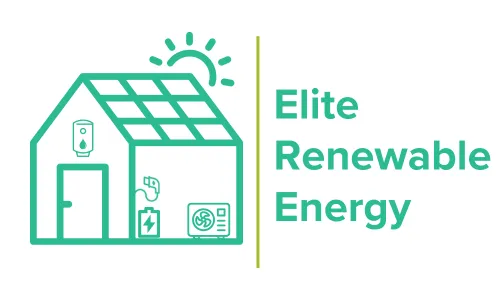Air Conditioning
Stay Cool and Comfortable Year-Round with Air Conditioning
Benefits of Air Conditioning

Comfort in Every Season

Energy-Efficient Performance

Improved Air Quality
What is Air Conditioning?
Air conditioning is a versatile solution that keeps your home or business comfortable year-round by cooling in summer and providing cost-efficient heating in winter. It improves indoor air quality by filtering out dust, allergens, and pollutants, promoting health and well-being.
Modern systems are quiet, energy-efficient, and reduce utility bills while lowering your carbon footprint. For homeowners and property developers, air conditioning enhances property value and offers precise control over your environment, creating the perfect atmosphere for work, relaxation, or entertaining.
Overheating in UK Homes: A Growing Issue
Overheating in homes has become an increasingly significant issue in the UK, particularly in recent years. Traditionally, the UK climate has been cooler compared to many other parts of the world, and homes were designed with a focus on heating rather than cooling. However, climate change is altering weather patterns, bringing more frequent and intense
heatwaves, which are causing indoor temperatures to rise. Additionally, changes in building regulations and a focus on energy efficiency have led to better insulation and airtightness in homes, making them more energy-efficient but also contributing to the overheating problem.
Why is overheating happening ?
Climate Change: The UK is experiencing warmer summers, with rising temperatures becoming more common due to climate change. This has led to higher temperatures inside homes, especially during heatwaves. Well-Insulated and Airtight Homes: Modern homes are built with high levels of insulation to improve energy efficiency and reduce heating costs. These homes are often airtight, meaning that they trap heat inside and don’t allow enough natural ventilation to cool down. In some homes, windows are sealed tightly to prevent draughts, but this can prevent cool air from entering during hot weather. Increased Use of Technology: More homes now contain technology and appliances that generate heat—such as computers, TVs, and kitchen appliances—adding to the indoor temperature. Smaller Homes: The trend towards smaller homes and open-plan spaces can also exacerbate overheating, as heat can easily accumulate without partitions or ventilation systems to help regulate the temperature.
Why Cooling is Now Needed ?
While the UK has historically not required air conditioning due to cooler summers, this is changing. As homes become more energy-efficient with improved insulation and airtight construction, cooling systems are now needed to maintain comfort during increasingly warm spells. Without proper cooling, homes can become uncomfortably hot, which can cause:
Health Issues: Overheating can cause heat stress, dehydration, and poor sleep, which can have a detrimental effect on health, especially for vulnerable individuals such as the elderly or those with pre-existing health conditions.
Reduced Productivity: High indoor temperatures can reduce comfort levels, making it harder to work, sleep, or carry out daily activities. This is especially problematic in the work-from-home era, where indoor comfort is vital.
Damage to Property: Persistent high temperatures can damage furniture, electronics, and other sensitive items within the home.
Cooling Options for Homes
There are several cooling options available to homeowners, ranging from simple, room-based solutions to more complex, centralised systems. Each option has its pros and cons, depending on the needs of the home and the budget.
1. Wall-Mounted Air Conditioning Units (Split Systems)
How they work: Wall-mounted air conditioning units are the most common and straightforward cooling solution for individual rooms. These systems consist of an internal unit, which is mounted on the wall and cools the room, and an external condenser unit that expels the heat outside. Advantages: Cost-Effective: These units are relatively affordable and easy to install, making them a great option for cooling single rooms or smaller properties. Portable: Some systems can be moved to different rooms if necessary. Quick to Install: These systems require minimal disruption during installation, often taking just a few hours. Disadvantages: Single-Room Cooling: These units are typically only effective for cooling a single room. If multiple rooms need cooling, additional units would be required, which can add to the cost. Aesthetic Impact: The wall-mounted units can be visually intrusive in the room. Costs: The cost of installing a wall-mounted air conditioning unit in the UK typically ranges from £1,500 to £3,500 for both the unit and installation, depending on the system's quality and capacity.
2. Portable Air Conditioning Units
How they work: These are standalone units that don’t require permanent installation. They cool the air by drawing in warm air, cooling it, and then expelling the hot air through an exhaust hose, typically through a window. Advantages: Flexible: They can be moved from room to room, making them ideal for cooling different spaces as needed. No Permanent Installation: They don’t require any significant changes to the building or structure. Disadvantages: Less Efficient: Portable units are less energy-efficient compared to wall-mounted split systems and can be noisier. Limited Cooling Capacity: They are generally suitable for smaller rooms and may struggle to cool larger spaces effectively. Costs: Portable air conditioning units can cost from £300 to £1,000, with installation being very simple and often not required.
3. Ducted Air Conditioning Systems (Centralised Cooling)
How they work: Ducted systems provide centralised cooling throughout the entire home. Cool air is circulated through a network of ducts and vents in different rooms, offering consistent cooling throughout the house. Advantages: Whole-Home Cooling: Ducted systems are perfect for larger homes or homes where multiple rooms need to be cooled simultaneously. Invisibility: The system is hidden in the ceiling or floor, with vents in each room. This means there is no visual intrusion, providing a more aesthetic solution. Efficient: Ducted systems tend to be more efficient at cooling larger spaces and can be controlled through a central thermostat. Disadvantages: High Installation Costs: Ducted systems are more expensive to install due to the complexity of the ductwork and the need for professional installation. They may also require extensive modifications to existing homes, especially in properties without existing ducts. Disruption: Retrofitting a ducted system to an existing home can be disruptive, involving ceiling or floor modifications and significant work. Costs: The cost of installing a ducted air conditioning system can range from £6,000 to £12,000 or more, depending on the size of the property, the number of rooms, and the complexity of installation compared to only £1,600 to £2,400 for simple systems. Retrofitting air conditioning systems in existing homes, especially older properties, can present challenges: Space for Ducting: In older homes or those with limited space, installing ductwork for a centralised system may be difficult or impractical. This can increase both costs and disruption during installation. Aesthetic Considerations: Installing large units or ducts can be visually intrusive, especially in homes with period features or aesthetic concerns. Cost and Complexity: Retrofitting can be expensive, and the process may require structural modifications to the property. For instance, if ducts need to be installed in walls or ceilings, it may involve cutting holes or altering the internal design of the home.
With the UK experiencing more frequent heatwaves and an increasing need for energy-efficient homes, air conditioning is becoming more necessary. From simple room-based wall units to more complex, whole-house ducted systems, there are a variety of cooling options to suit different homes and budgets. While systems like wall-mounted units and portable units are
affordable and easy to install, they are best suited for smaller homes or individual rooms. For larger properties or homeowners who want consistent cooling throughout their entire home, a ducted system with a reversible heating and cooling heat pump might be the best solution, although these come with higher upfront costs and more complex retrofitting requirements. Homeowners should carefully consider their needs, budget, and the potential challenges of retrofitting before deciding on the best cooling solution for their home.
// WORKING PROCESS
Our 4 Step Solution
01...
Get In Touch:
Simply call us or complete the contact form above. We love to chat and happy to discuss your ideas informally over the phone if you don't need a survey.
02...
Survey Carried Out:
If you really want to get under the skin of your project we need to visit. Our friendly and knowledgeable surveyors will provide all the answers on the day and will send you a written report with our conclusions. We like tea or coffee and a biscuit or two is even better.
03...
Quote:
Our quotation will provide all the information that you need on the systems that we are proposing. Giving you the data on the performance you can expect, the likely return on your investment and the cost of the solution. This will provide you with all you need to decide on the economic viability of the investment and the benefits it will provide.
04...
Installation & Aftercare:
Once you have accepted our quotation we will book the work in with you and carefully plan your installation. When we have carried out the work, our ongoing support and maintenance services will give you the utmost peace of mind and reassurance that you have made a sound investment.
Servicing Dorset, Hampshire and Wiltshire
Our Work
Contact us today
Copyright 2024 Elite Renewables - all rights reserved
Elite Renewables is a trading name of Elite Renewable Energy Ltd
Elite Renewable Energy Ltd is registered as a limited company in England & Wales under company number 16090413 Registered Address: Tudor Lodge, 22 Chewton Farm Road, Highcliffe, BH23 5QN
